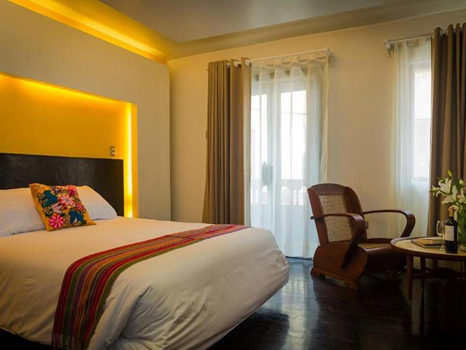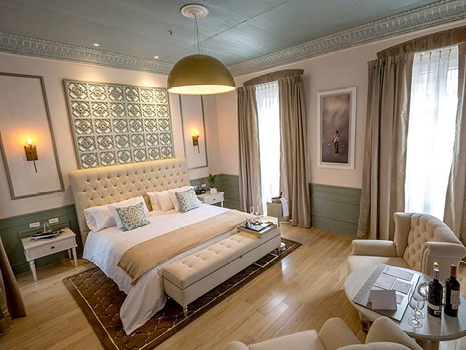The Douglas Mawson is a brand-new Antarctic vessel setting sail in 2025. Honouring the famed Australian geologist and explorer, this purpose-built ship epitomises Mawson’s pioneering ethos, dedicated to discovery. It boasts the innovative Ulstein X-BOW®, enabling seamless traversal of waves for swifter, more comfortable voyages, with reduced fuel consumption and emissions.
 WHY WE LOVE THE DOUGLAS MAWSON
WHY WE LOVE THE DOUGLAS MAWSON
- The latest cutting-edge vessel, the Douglas Mawson first sets sail in 2025, a brand-new ship built to offer a luxury expedition experience, combined with responsible travel elements
- Only takes up to 154 passengers, creating an intimate expedition experience. Most rooms offering private balconies
- With X-Bow technology, you’ll enjoy increased stability if the ship encounters rough seas
 FEATURES OF THE DOUGLAS MAWSON
FEATURES OF THE DOUGLAS MAWSON
Innovative technology like no other
Featuring the latest in nautical technology, the ship is fitted with world-class return-to-port equipment. The ship also features a medical clinic designed for use in remote areas.
And for citizen scientists, there’s a separate centre and lounge with all of the scientific gear needed to contribute vital research data.
Easy access to zodiacs means more time for excursions
Facilitating seamless access to Zodiacs, the vessel is equipped with dedicated boarding points and an activities platform, ensuring swift, efficient, and safe embarkation, minimising wait times for extended periods of exploration. The nearby mudroom provides lockers for gear and boots storage, alongside rapid drying areas for clothing, enhancing the overall expedition experience.
Luxury amenities
After a day of exploration, guests can relax in the heated outdoor swimming pool or one of two Jacuzzis on the rear deck. For the more active, hit the gym before unwinding in the sauna. Guests can also enrich their knowledge at the Citizen Science Centre and then indulge in culinary delights at one of two restaurants. Passengers can also simply relax in comfort across multiple observation areas, admiring wildlife or breathtaking landscapes.
In addition to its advanced features, the Douglas Mawson offers an array of amenities helping to connect fellow travellers, enhancing the floating base camp experience.
Stylish and modern staterooms
Tasteful and spacious cabins and suites feature Antarctic photography and plenty of gear storage space. All staterooms are spacious, with easy deck access, and some suites have separate lounge areas where you can unwind. Some of the Balcony Stateroom Superior rooms are equipped with wheelchair-accessible bathrooms.































 FEATURES OF THE DOUGLAS MAWSON
FEATURES OF THE DOUGLAS MAWSON






